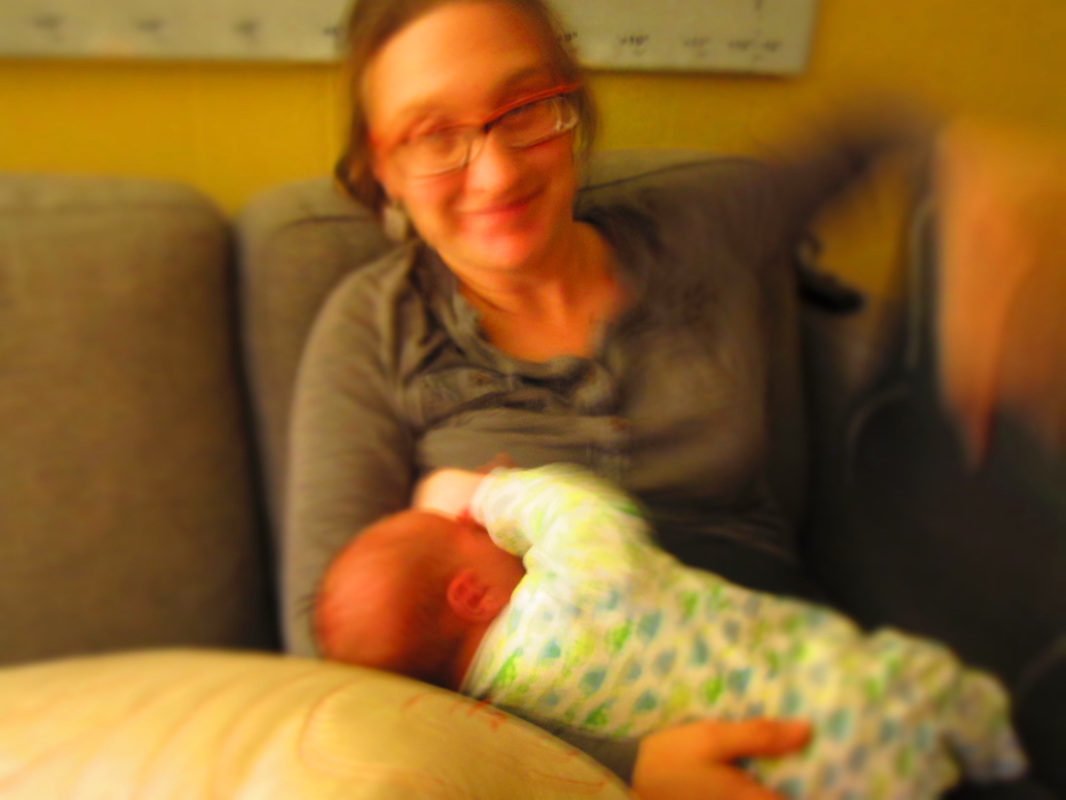Sometimes the decision we make as parents of young children in 2014 were not even a choice back when we were born or growing up. Or maybe current research points to alternatives to what we experienced as children. There may also be "hot button" issues for new parents, choices that feel big and critical and not worth compromising. These issues may not have existed for the new grandparents, or if they did, the grandparents chose differently.
Trying to explain why you're insisting your child doesn't eat solid foods until 6 months or your preference for more natural skin-care products, for example, can be met with resistance. Perhaps your parents don't understand how you came to that decision, or they may not be familiar with the current recommendations. Maybe your parents consciously chose differently than you, and now anything other than the way you were raised feels confrontational or as if you're saying they made the wrong choices. To which you will probably hear, "but you turned out fine!". And you may agree you turned out fine, or you may feel that fine is fine but you want better than fine. Or, maybe you have health issues that may not have occurred had your parents chosen differently with any of the decisions they were faced. Regardless, it's bound to feel uncomfortable for either or both parties involved, and there may be some unnecessary stress during a time when you're trying to figure out this whole parenting gig.
I don't have all the answers, by any means, but here are some ideas for handling "but you turned out fine!" statements.
- Choose your battles, New Parent. Yes, I believe that it feels ultra important that you make every decision about your child, regardless of importance of outcome. But to parent in community and with loved ones means you can lean on others for support. You may not have to make every decision by yourself, and while that may feel scary for you in the beginning, it's going to set you up for feeling well supported as your child grows. That's not to say you have to compromise on the issues that are mega-important, because you don't. There are going to be big issues that you just won't change your mind. And that's okay. But if every decision has the same value, then you may feel overburdened and overwhelmed by having to oversee that anyone caring for your child cares for him the exact same way as you, making the same decisions as you.
- State your preferences, state your no-compromise issues. If your child is going to be cared by another, be clear about what it is you will not compromise. Correct carseat use every time? Yes, definitely. Nap time at exactly 1:30pm? There's some wriggle room there to allow for your child's day and mood. And don't feel like you need to apologize for your no-compromise issues. State that research supports your choice or point to your pediatrician as the expert who also supports your choice. Or simply say this is your decision and you're standing by it. Also, I suspect that if you leave some room for your care provider and/or your child to be part of the decision making process on some of the issues that may not truly be all that critical, you will get less resentment or kick-back on your no-compromise issues.
- Put yourself in their shoes. Just as we wouldn't dare imagine our precious little ones someday scolding us that we didn't make the right choices or rolling their eyes at us that we would even think of... think about how you're communicating with your parents about the issues that are important to you. I think everyone can agree a great many kids have grown into healthy and happy adults, in spite of how they were raised. But talking to your parents as if they know absolutely nothing about child-rearing may not help the matter or your relationship. If your parents made choices that truly did put you in danger, and you know they will make the same choice with their grandchild, then that needs to be addressed. But again, part of parenting in community means trusting and leaning on others for support. Some of that means letting go of micromanaging the smaller details.
Take that deep breath, let it go and learn to state confidently the issues that matter most to you. The rest? You can decide when and how to let others help you in caring for your child, even if it's not the exact same care as you'd provide.


 RSS Feed
RSS Feed
